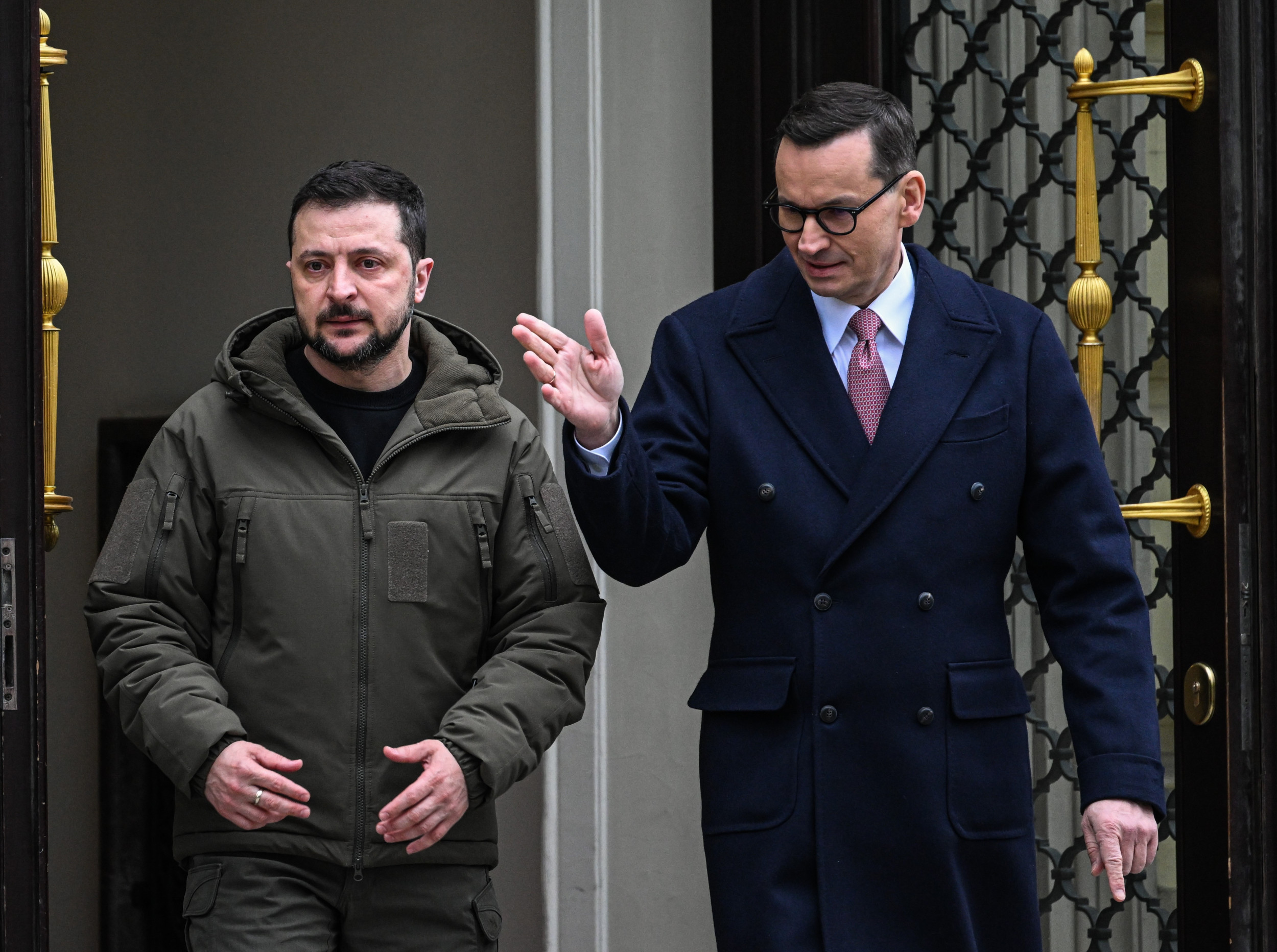In an escalating diplomatic exchange, Poland’s Prime Minister, Mateusz Morawiecki, has sternly responded to Ukrainian President Volodymyr Zelensky’s recent comments about Poland’s stance on grain exports. This confrontation threatens to strain the historically close ties between the two nations, which have previously stood united against Russia’s aggression in Ukraine.
The source of this tension lies in a recent dispute over the ban on Ukrainian grain exports. Several European Union (EU) nations, including Poland, initially implemented this ban earlier this year, citing concerns about local farmers facing unfair competition due to the lower prices of Ukrainian grain.
However, the EU recently announced its intention to lift the ban. Poland, Hungary, and Slovakia, however, chose to maintain the ban, sparking protests from Ukraine. Ukraine even resorted to filing lawsuits against these three countries. President Zelensky’s comments at the United Nations’ General Assembly further exacerbated the situation.
During his address at the UN, Zelensky referred to the dispute as “political theater” and hinted at some European nations sensationalizing the issue. This veiled criticism did not sit well with Prime Minister Morawiecki, who responded emphatically during a rally in Swidnik, Poland.
Morawiecki declared, “I want to tell President Zelensky never to insult Poles again, as he did recently during his speech at the UN.” He went on to emphasize that defending Poland’s reputation is not only his duty but also a fundamental responsibility of the Polish government.
This exchange of words has the potential to deepen the rift between Poland and Ukraine, two nations that have historically been staunch allies in the face of Russia’s invasion of Ukraine.
Interestingly, the underlying issue at the heart of this dispute—the Ukrainian grain ban—has been a contentious matter for both sides. While the EU intends to lift the ban, Poland’s decision to maintain it has been met with backlash from Ukraine, leading to the legal actions and Zelensky’s UN comments.
Poland’s initial response to Zelensky’s remarks was swift and severe. The country’s foreign ministry summoned the Ukrainian ambassador to convey its “strong protest.” Moreover, Prime Minister Morawiecki issued a blunt social media statement announcing a halt to the transfer of weapons to Ukraine, asserting that Poland was now focusing on its own defense.
This abrupt change in policy raised eyebrows as Poland has been one of the most active supporters of arming Ukraine in its struggle against Russian aggression. However, President Andrzej Duda later clarified Morawiecki’s statement, stating that it referred specifically to new weapons being purchased for the Polish army. He assured that older weapons systems, deemed unnecessary for modernizing Poland’s military, could still be provided to Ukraine.
Analysts speculate that Poland’s stance on the grain dispute may be influenced by upcoming elections, with the government seeking to appease farmers concerned about the impact of Ukrainian grain imports on their livelihoods.
Notably, Poland has long been regarded as one of Ukraine’s steadfast allies, alongside other former Eastern bloc nations that share concerns about the potential expansionist ambitions of Russian President Vladimir Putin.
In a related development, Hungary’s Foreign Minister, Peter Szijjarto, expressed skepticism about imposing new sanctions on Russia, suggesting that such measures would be more detrimental to Europe than to Russia. Additionally, Szijjarto warned that the influx of Ukrainian grain into Central European countries could have severe repercussions for the region’s agricultural sector.
As tensions persist and the grain dispute unfolds, the diplomatic dynamics in Eastern Europe continue to evolve, potentially reshaping the relationships among neighboring nations.


